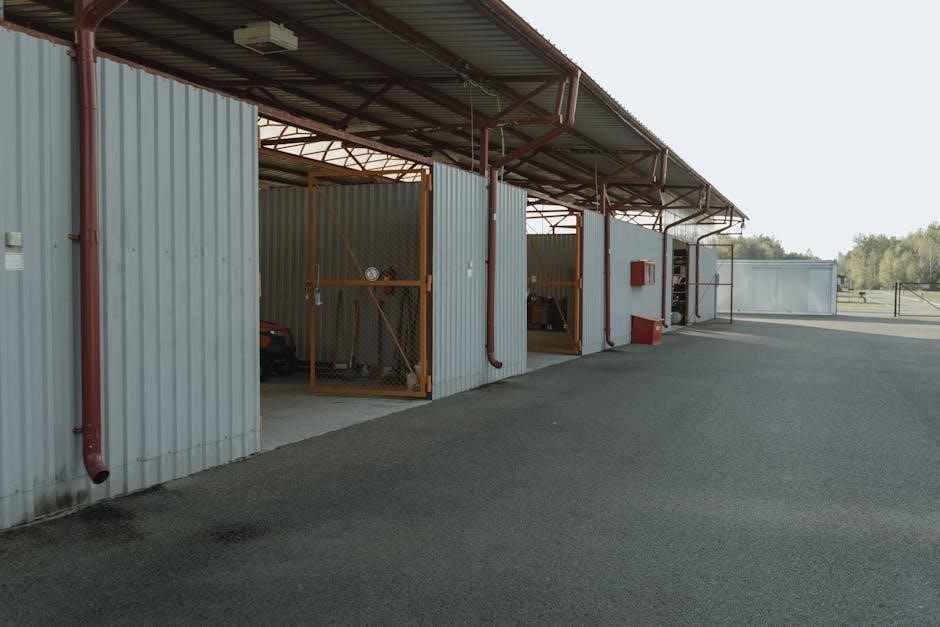2 Day Colonoscopy Prep Instructions Overview
A 2-day colonoscopy prep involves dietary changes, bowel cleansing with prescribed medications, and hydration guidelines to ensure a clear colon for accurate results during the procedure.
Colonoscopy preparation is essential to ensure a clean colon for accurate results. It involves dietary changes, bowel cleansing with medications, and hydration to empty the colon. The process typically starts 2-3 days before the procedure, focusing on a low-fiber diet and clear liquids. Proper preparation helps doctors detect abnormalities, polyps, or cancer. Following instructions carefully ensures the colon is clear, making the procedure effective and safe. This overview guides you through the steps to prepare, emphasizing the importance of each phase for a successful colonoscopy.
Why Proper Preparation is Essential
Proper colonoscopy preparation ensures a clear view of the colon, allowing doctors to detect polyps, abnormalities, or cancer early. Inadequate prep can obscure visibility, leading to missed diagnoses or repeat procedures. A clean colon enables precise examination, reducing risks and improving outcomes. Following instructions strictly is crucial for safety and effectiveness, ensuring the procedure is both accurate and efficient. Proper preparation is key to a successful and informative colonoscopy experience, making it a critical step in maintaining gastrointestinal health.
Dietary Changes Before Colonoscopy
Dietary changes before colonoscopy involve switching to a low-fiber diet, avoiding high-fiber foods, and transitioning to clear liquids the day before the procedure to ensure a clean colon;
Low-Fiber Diet Recommendations
A low-fiber diet is essential 2-3 days before the colonoscopy to minimize residue in the colon. Avoid high-fiber foods like whole grains, nuts, seeds, and raw vegetables. Opt for low-fiber options such as bananas, applesauce, eggs, and lean meats. This helps ensure the colon is as clear as possible for the procedure, improving visibility and accuracy during the exam. Adhering to this diet is crucial for effective bowel preparation and successful colonoscopy results.
Foods to Avoid 2-3 Days Before the Procedure
To ensure effective bowel cleansing, avoid high-fiber foods like fresh vegetables (e.g., beets, carrots, cabbage), whole grains, nuts, seeds, and legumes. Also, avoid raw or undercooked fruits, dried fruits, and any foods that are difficult to digest. These foods can leave residue in the colon, making it harder for your doctor to get a clear view during the procedure. Stick to low-fiber, easily digestible foods to help achieve the best preparation results.
Clear Liquids Only Diet on the Day Before
The day before your colonoscopy, you must switch to a clear liquids-only diet to ensure your colon is empty and ready for the procedure. Clear liquids include water, clear broths, electrolyte-rich beverages like sports drinks, and clear juices (e.g., apple or grape juice without pulp). Avoid any solid foods, dairy products, or opaque liquids. Stay hydrated by drinking plenty of fluids, but stop consuming liquids at least 2 hours before the procedure to prevent any residue from interfering with the exam. This step is crucial for accurate results.
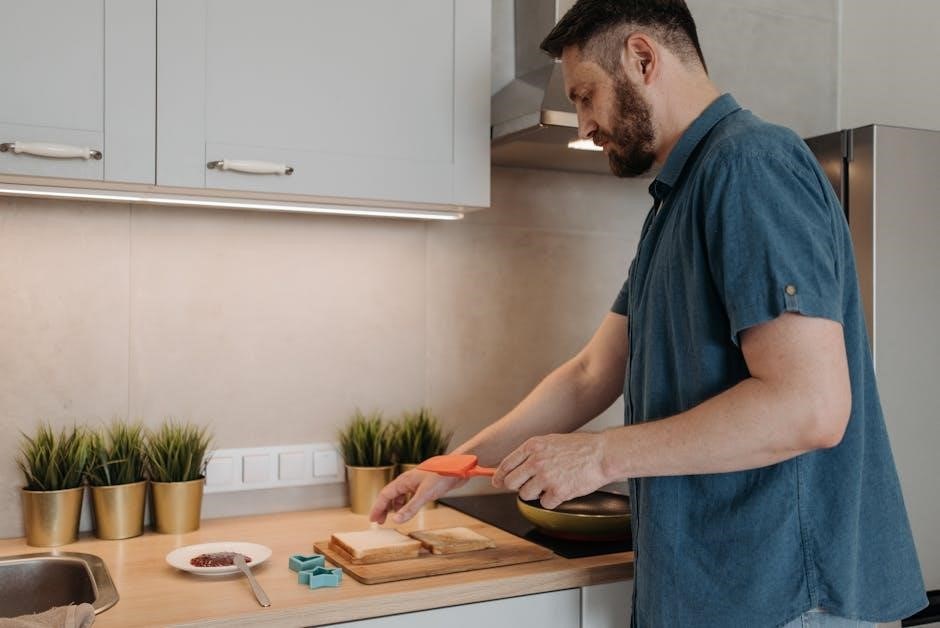
Bowel Prep Medication Instructions
Bowel prep medications like Miralax or Dulcolax are essential for cleansing the colon. Follow the provider’s instructions for preparation and timing to ensure effectiveness and safety.
Types of Bowel Prep Solutions (Miralax, Dulcolax, etc.)
Common bowel prep solutions include Miralax (polyethylene glycol 3350) and Dulcolax (bisacodyl). Miralax works as an osmotic laxative to soften stool, while Dulcolax stimulates bowel movements. Both are effective for colon cleansing when used as directed. Your healthcare provider may recommend one based on your medical history and tolerance. Follow the instructions provided with each medication to ensure proper preparation for your colonoscopy.
How to Prepare and Take the Medication
To prepare, mix the prescribed bowel prep solution (e.g., Miralax or Dulcolax) with water as directed. For Miralax, dissolve the powder in 64 ounces of water. Take the medication in the evening or split into two doses for better tolerance. Dulcolax tablets should be swallowed whole with water. Follow the timing instructions provided by your healthcare provider, typically starting the evening before the procedure. Ensure you complete the full dose to achieve optimal cleansing for accurate results during your colonoscopy.
Split Dosing for Better Effectiveness
Split dosing involves taking the bowel prep medication in two separate sessions for improved tolerance and effectiveness. Typically, half the dose is taken the evening before the procedure, and the remaining half is taken the next morning, 4-6 hours before the colonoscopy. This approach minimizes side effects like bloating and cramps while ensuring a thorough cleanse. Split dosing is recommended for better adherence and optimal bowel preparation, leading to clearer results during the procedure. Always follow your healthcare provider’s specific instructions for timing and dosage.
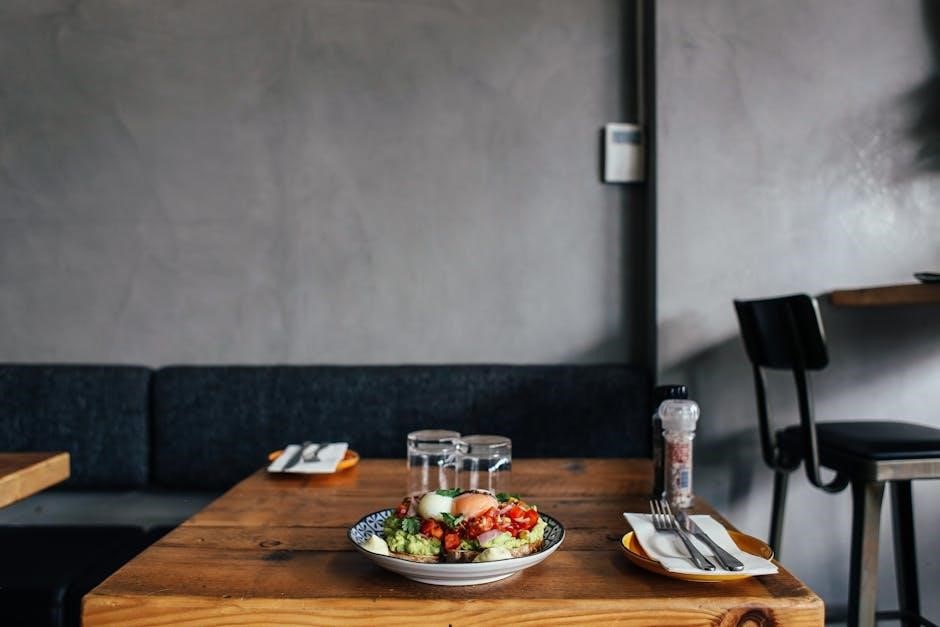
Hydration Guidelines
Staying hydrated is crucial during colonoscopy prep. Drink 2 liters of clear fluids daily, avoiding red or purple liquids. Stop drinking 2-3 hours before the procedure.
Importance of Staying Hydrated
Hydration is essential during colonoscopy preparation to prevent dehydration and ensure the bowel prep works effectively. Drinking plenty of clear fluids helps flush out stool, improving visibility during the procedure. Proper hydration also prevents electrolyte imbalances and dizziness. Aim to drink at least 2 liters of clear liquids daily, avoiding red or purple fluids that could obscure visibility. Staying hydrated ensures your colon is clean, allowing your doctor to detect abnormalities accurately. Dehydration can lead to discomfort, so drink consistently throughout the prep period.
Recommended Fluid Intake
Drinking 2 liters (8-10 glasses) of clear fluids daily is recommended during colonoscopy prep. Start with 1 liter in the morning and 1 liter in the afternoon. Clear fluids like water, broth, and clear juices are ideal. Avoid red or purple fluids to prevent interfering with visibility. Continue hydrating until 4-6 hours before the procedure, then stop drinking fluids entirely. Proper fluid intake ensures the bowel prep works effectively and helps prevent dehydration, making the colonoscopy process safer and more accurate for your doctor to examine your colon thoroughly.
When to Stop Drinking Before the Procedure
Stop drinking all fluids 4-6 hours before your colonoscopy to ensure your colon is clear of liquids. This allows your doctor to have an unobstructed view during the exam. Until then, stay hydrated with clear fluids like water, broth, or clear juice to help the bowel prep work effectively. Ceasing fluids on time is crucial for accurate results and a successful procedure. Remember, no fluids of any kind should be consumed during this final period to avoid delays or rescheduling.
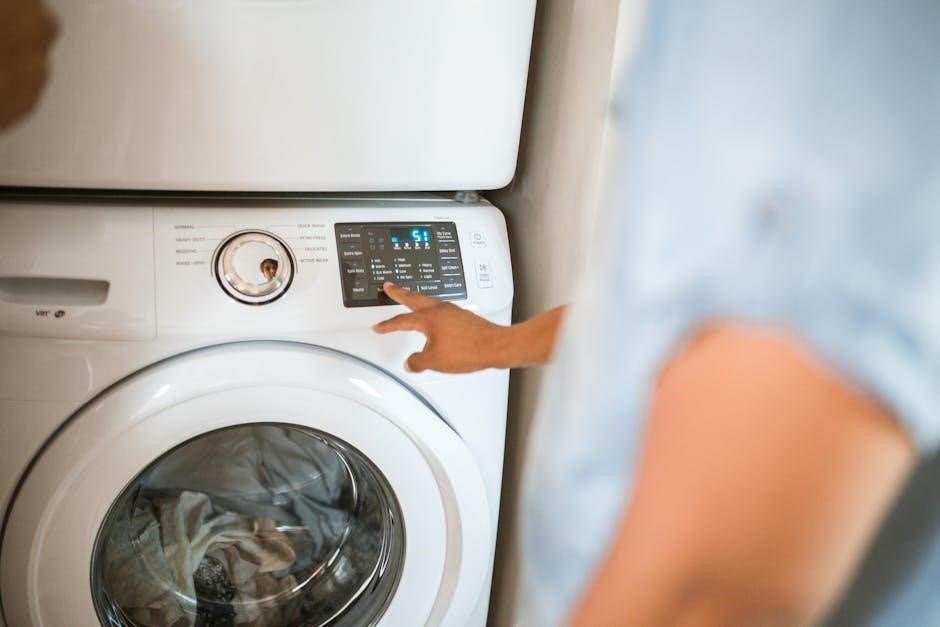
Lifestyle Adjustments During Prep
During colonoscopy prep, avoid strenuous activities and plan for light tasks only. Rest is crucial to ensure the procedure’s success. Arrange for someone to accompany you post-procedure for safety.
Avoiding Strenuous Activities
Rest is essential during colonoscopy prep to ensure effectiveness. Avoid heavy lifting, bending, or intense exercise, as these can disrupt bowel preparation. Limit physical exertion to light activities like short walks. This helps prevent complications and allows your body to focus on cleansing properly. Strenuous activities may interfere with the procedure’s success, so prioritize relaxation and avoid overexertion.
Arranging for Accompaniment Post-Procedure
Arrange for a responsible adult to accompany you home after the colonoscopy, as sedation may cause drowsiness. You will not be allowed to drive or operate machinery for 24 hours. Ensure someone stays with you to monitor recovery and assist with any needs. This precaution ensures safety and proper care following the procedure.
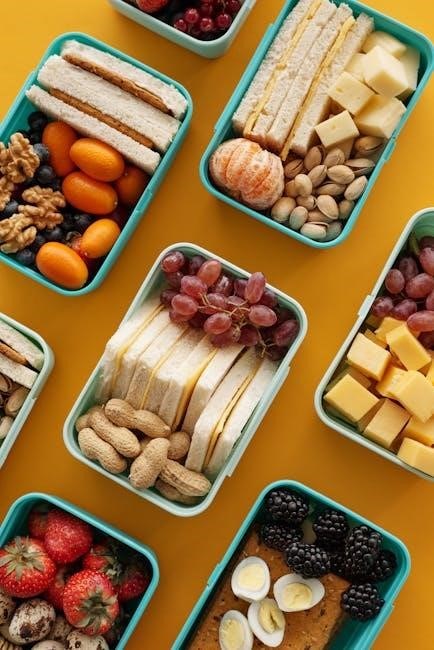
Common Side Effects and Management
Common side effects of bowel prep include bloating, cramps, and diarrhea. Manage discomfort with over-the-counter remedies and stay hydrated for easier recovery.
Expected Side Effects of Bowel Prep
Common side effects of bowel prep include nausea, bloating, cramps, and diarrhea. These symptoms are temporary and typically subside after completion of the prep. Some patients may also experience abdominal discomfort or rectal irritation due to the laxative effects of the medication. Staying hydrated and resting can help alleviate mild discomfort. If symptoms persist or worsen, consult your healthcare provider for guidance. Proper hydration and following instructions carefully can minimize these effects and ensure a successful procedure.
How to Manage Discomfort
To manage discomfort during colonoscopy prep, stay hydrated with clear fluids to prevent dehydration and ease cramps. Resting can help reduce abdominal tension. Consider over-the-counter remedies like ginger for nausea, but consult your healthcare provider before use. Splitting medication doses may help spread side effects. Clear broths or electrolyte-rich drinks can aid hydration. Monitor symptoms: seek help if experiencing severe abdominal pain or persistent vomiting. Use a heating pad or relaxation techniques to alleviate discomfort. Ensure to follow medication schedules and consult your provider if symptoms worsen.

Emergency Situations and When to Seek Help
Seek immediate help if you experience severe abdominal pain, vomiting, dizziness, or heavy rectal bleeding. Contact your healthcare provider if symptoms persist or worsen unexpectedly.
Recognizing Severe Side Effects
Severe side effects from colonoscopy prep may include intense abdominal pain, excessive rectal bleeding, dizziness, or difficulty breathing. These symptoms require immediate medical attention to prevent complications. If you experience chest pain, severe dehydration, or fainting, contact your healthcare provider right away. Persistent vomiting or inability to retain fluids also signals a need for urgent care. Recognizing these signs early ensures prompt treatment and avoids serious health risks associated with bowel preparation.
Contacting Your Healthcare Provider
If you experience severe symptoms or have concerns during colonoscopy preparation, contact your healthcare provider immediately; They can address issues like side effects or prep effectiveness. Inform them of any medication changes or allergies. Your provider may adjust instructions or offer alternatives to ensure safety and success. Clear communication is crucial for a smooth procedure and optimal results. Don’t hesitate to reach out with questions or concerns to avoid complications and ensure proper preparation.
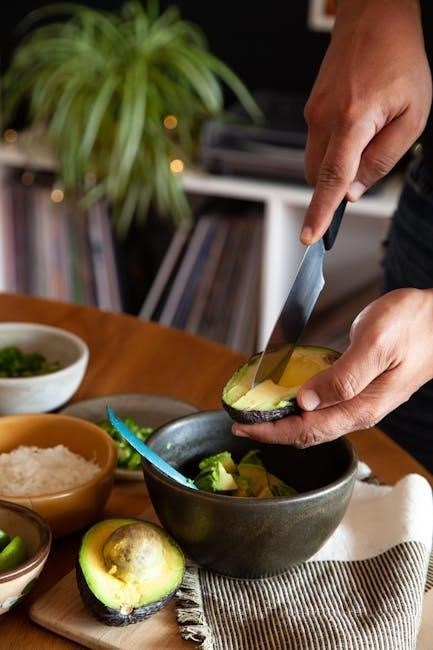
Day of the Colonoscopy
On the day of the colonoscopy, arrive at the designated time, refrain from eating, and wear comfortable clothing. Bring necessary documents and accompany
Final Preparations and Check-In
On the day of the colonoscopy, arrive at the scheduled time and check in at the designated desk. Wear loose, comfortable clothing and avoid wearing jewelry or tight accessories. Bring your insurance cards, identification, and a list of medications. A responsible adult must accompany you to drive you home afterward. Complete any remaining paperwork and ensure you have followed all fasting instructions. Restrooms will be available, but avoid eating or drinking anything. Be prepared to discuss your medical history and any concerns with the healthcare team before the procedure begins.
What to Expect During the Procedure
The colonoscopy typically lasts 15-30 minutes. You’ll lie on your side, and sedation will be administered to ensure comfort. The doctor will insert a flexible colonoscope into the rectum, gently inflating the colon with air for better visibility. They will examine the colon lining, removing any polyps if found. You may feel mild discomfort or cramping, but this is usually temporary. The procedure is painless for most people and is crucial for detecting abnormalities early. Once complete, you’ll rest briefly before being discharged.

Post-Procedure Care
After the colonoscopy, rest for 1-2 hours at the facility. Avoid driving and heavy tasks for 24 hours. Follow a light diet and hydration instructions provided.
Recovery and Aftercare Instructions
Post-procedure, rest for 1-2 hours at the facility. Avoid driving or strenuous activities for 24 hours. Resume a light diet gradually, avoiding heavy meals initially. Stay hydrated with clear fluids. Follow specific dietary advice from your healthcare provider. Monitor for any unusual symptoms like severe abdominal pain, bleeding, or fever, and seek medical attention if they occur. Resume normal activities the next day unless instructed otherwise by your doctor.
Resuming Normal Activities
Most patients can resume normal activities the day after colonoscopy, provided they feel well. Avoid driving or operating heavy machinery for 24 hours. Return to work or daily routines as tolerated. Eat light meals initially, avoiding heavy or greasy foods. Follow your healthcare provider’s specific instructions regarding diet and activity. If sedation was used, ensure a responsible adult accompanies you home. Resume regular medications unless advised otherwise. Contact your doctor if experiencing unusual symptoms or concerns.



